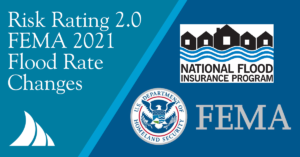Do you think the market is going to crash and should I wait before buying something now?
I get this question a lot. Unlike the real estate crash that occurred from 2007-2009, where the thriving market was built on speculation and buyers getting sub-prime mortgages, this market is much more sound from the perspective that it hasn’t been investor driven, and most buyers have either paid cash or taken out a smaller percentage of financing. As I’ve mentioned in previous newsletters, people found they could work remotely, and having sold homes up north at significantly higher prices, decided there was no reason to wait until their retirement years to move to Florida. However, with prices having risen due to high demand and low inventory levels it would appear more likely that the meteoric rise may become more gradual and that buyers will become more patient, waiting for there to become more of a balance in the market than the buying frenzy that has occurred the past two years. Where I do see signs that inventory levels could remain low stem from sellers who would like to take advantage of the market, but don’t want to jump into the pond of other buyers desperately looking for a home. The feeling the profits attained could be offset by the increased price they would be paying for their next home, may not be worth putting their home on the market for sale. Could that limit new listings coming on the market, resulting in fewer homes available for sale? Possibly, but natural disasters, epidemics and the loss of loved ones can put what is important in life in a different perspective. The desire to downsize, travel more, or moving back closer to family will continue to bring new inventory on the market and the willingness we are seeing from buyers looking for a better quality of life I feel bodes well for the market to remain strong this new year.
NEW Flood Insurance Info
 The new FEMA flood changes are on everyone’s mind these day, as the increases went into effect on October 1, 2021. Instead of relying on “flood zones” as a determination of your flood exposure, the new system is referred to as “Rating 2.0,” which is a single risk modeling system that takes into consideration area and proximity to harbor, replacement coverage, frame vs. block construction along with slab vs. pilings. Also considered is prior flood loss. Banks may use flood zones, but insurance companies are going by the new rating system. So what does all of this mean you ask? Well, if you have an existing flood policy your flood insurance will increase approximately 18% per year until you reach the figure FEMA has established as the target figure for your property. If you don’t have flood insurance then you will be subject to the new valuations FEMA has established. When buying a home it is important to find out in the beginning of your negotiations if the current seller is carrying flood insurance, as this will impact your investment in the home significantly. To give you a better understanding of the difference in buying a home where the seller is carrying flood insurance verses one where they aren’t, recently we had a buyer purchasing a home on a gulf access canal. They were quoted $6,700.00 to obtain flood insurance for the home. Thankfully, the seller’s insurance carrier said their policy could be assumed, which saved our buyer a significant amount of money as the seller was paying $1,080.00 for flood insurance. It is important to find out up front when negotiating the purchase of a home if the current homeowner is carrying flood insurance and if the policy can be assumed.
The new FEMA flood changes are on everyone’s mind these day, as the increases went into effect on October 1, 2021. Instead of relying on “flood zones” as a determination of your flood exposure, the new system is referred to as “Rating 2.0,” which is a single risk modeling system that takes into consideration area and proximity to harbor, replacement coverage, frame vs. block construction along with slab vs. pilings. Also considered is prior flood loss. Banks may use flood zones, but insurance companies are going by the new rating system. So what does all of this mean you ask? Well, if you have an existing flood policy your flood insurance will increase approximately 18% per year until you reach the figure FEMA has established as the target figure for your property. If you don’t have flood insurance then you will be subject to the new valuations FEMA has established. When buying a home it is important to find out in the beginning of your negotiations if the current seller is carrying flood insurance, as this will impact your investment in the home significantly. To give you a better understanding of the difference in buying a home where the seller is carrying flood insurance verses one where they aren’t, recently we had a buyer purchasing a home on a gulf access canal. They were quoted $6,700.00 to obtain flood insurance for the home. Thankfully, the seller’s insurance carrier said their policy could be assumed, which saved our buyer a significant amount of money as the seller was paying $1,080.00 for flood insurance. It is important to find out up front when negotiating the purchase of a home if the current homeowner is carrying flood insurance and if the policy can be assumed. While most people would like to talk about themselves, Gary and Gail have always put their clients first, and their diverse backgrounds have provided their clients an unparalleled level of service and knowledge throughout the past years.
While most people would like to talk about themselves, Gary and Gail have always put their clients first, and their diverse backgrounds have provided their clients an unparalleled level of service and knowledge throughout the past years.